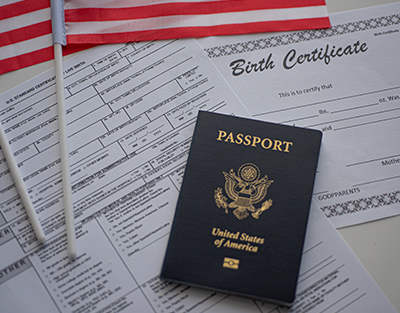
Download this material in English here.
Download this material in Spanish here.
What to do When PROFECO Knocks on Your Door
It’s a reality that the retail industry is one of the sectors that has suffered the most significant impact during and after the Covid-19 pandemic. The industry was forced to adapt to the virtual realm, resulting in various changes in how e-commerce compliance was verified and accredited. For example, the implementation of the “Digital PROFECO Badge”, awarded to providers who excelled in promoting safety and transparency to consumers through digital platforms, and the evolution of the “Monitoring of Virtual Stores”, also promoted by PROFECO.
A year after the end of the Covid-19 health emergency in May 2023, the industry is once again facing a major challenge, that of the " rebirth of physical stores".
After being compelled to shift product acquisitions to a virtual modality, people are eager to return to the physical shopping experience.
Therefore, it is no surprise that Mexican authorities are strengthening compliance verification processes through inspections of physical stores, which are becoming increasingly common.
These “verification visits” that we have all heard about or experienced can only be conducted by PROFECO personnel, who must meet the requirements stipulated by the law; otherwise, they would be illegal.
It is important to thoroughly review the documentation provided by the verifier before granting access to the store tour, as the correct company details must be included in the verification order.
Otherwise, the verified company may refuse the visit. The purpose of these verification visits in physical stores is usually related to labeling and commercial information available to consumers at the time of purchase, so various labeling standards (NOMs) could apply.
It is essential to be prepared for them, to train our on-site personnel, and to identify the verifier’s findings to be in a position to correct any irregularities and avoid the initiation of administrative proceedings.
Prevention is key to the success of these visits, so we recommend periodic internal reviews of facilities, labels, and safety regulations, as well as the constant review of the modifications to the NOMs on labeling and the request for compliance certifications issued by Authorized Verification Units, since these are considered an official document of compliance.
It is important to remember that there are procedures that help the importer and responsible for the product in case of involuntary inconsistencies, such as the request for extension in labeling due to inaccurate data, which allows products to be marketed for a certain period while the labeling is corrected, as long as the information is not considered a risk to the consumer.
The Directorate General of Standards (DGN) of the Ministry of the Economy has shown us that it is acceptable to make mistakes, as long as the company is fully committed to rectifying them and complying with applicable laws and regulations.
We encourage you to take preventive measures and get proper advice. Don’t let yourself be caught off guard.
For any questions or comments about this article, please contact our specialists Eduardo Sotelo-Cauduro [email protected] and Laura Elisa Sánchez-Barrón [email protected]
-
 February 07, 2025"Birthright citizenship" by Abel Mejía - Article in Spanishread article
February 07, 2025"Birthright citizenship" by Abel Mejía - Article in Spanishread article -
 January 10, 2025"Status of the Corporate Transparency Act" by Abel Mejía - Article in Spanishread article
January 10, 2025"Status of the Corporate Transparency Act" by Abel Mejía - Article in Spanishread article -
 December 10, 2024"Charging Stations: The Future Potential of Investments in Mexico," by Tania Trejo for Energy Debateread article
December 10, 2024"Charging Stations: The Future Potential of Investments in Mexico," by Tania Trejo for Energy Debateread article